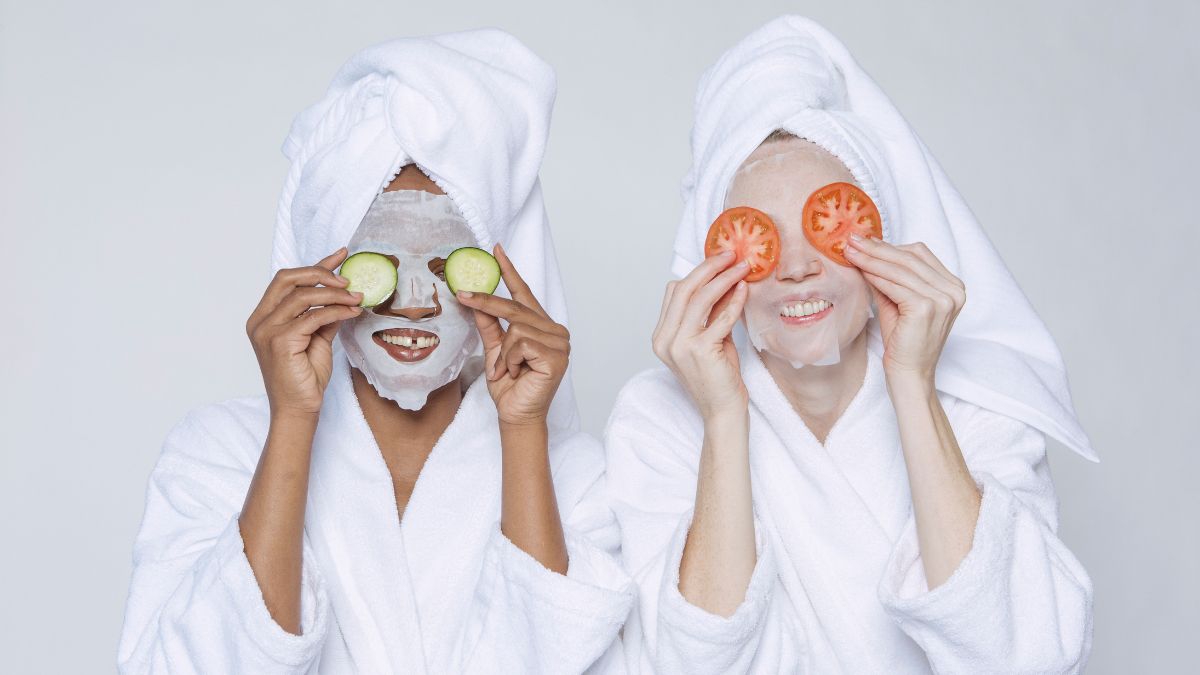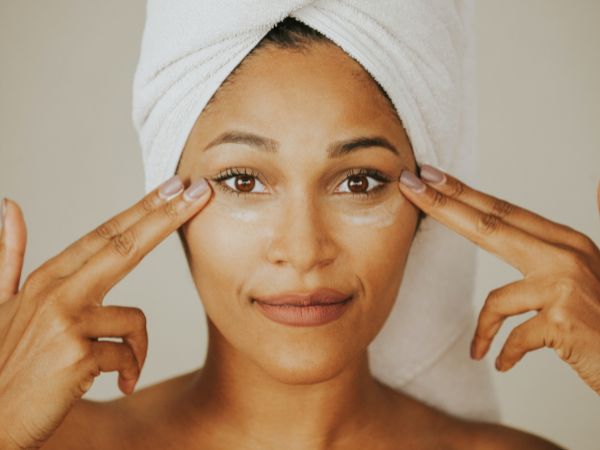Just In
- 9 min ago

- 7 hrs ago

- 16 hrs ago

- 18 hrs ago

Don't Miss
- Finance
 1:10 Split Coming Up: Crorepati FMCG ITC Turns Rs 1,50,000 To Rs 1.2 Crore; Makes Big Announcement; BUY?
1:10 Split Coming Up: Crorepati FMCG ITC Turns Rs 1,50,000 To Rs 1.2 Crore; Makes Big Announcement; BUY? - Sports
 Pakistan vs New Zealand Playing 11: PAK vs NZ 4th T20I Team News, Predicted Lineup And Other Details
Pakistan vs New Zealand Playing 11: PAK vs NZ 4th T20I Team News, Predicted Lineup And Other Details - Education
 JEE Main Result 2024 Out, Telangana's 15 Toppers Shine, Check Statewise List of 56 Candidates with Perfect 100
JEE Main Result 2024 Out, Telangana's 15 Toppers Shine, Check Statewise List of 56 Candidates with Perfect 100 - News
 Mangalsutra Row: Did Indira Gandhi Donate Gold During The 1962 War? The Facts Behind Priyanka's Claim
Mangalsutra Row: Did Indira Gandhi Donate Gold During The 1962 War? The Facts Behind Priyanka's Claim - Movies
 Kota Factory 3 OTT Release Date, Platform: When Will Jitendra Kumar's Web Series Premiere On Netflix?
Kota Factory 3 OTT Release Date, Platform: When Will Jitendra Kumar's Web Series Premiere On Netflix? - Travel
 Escape to Kalimpong, Gangtok, and Darjeeling with IRCTC's Tour Package; Check Itinerary
Escape to Kalimpong, Gangtok, and Darjeeling with IRCTC's Tour Package; Check Itinerary - Technology
 OPPO Find X7 Ultra Camera Deep-Dive: Pushing the Boundaries of Photography on a Smartphone
OPPO Find X7 Ultra Camera Deep-Dive: Pushing the Boundaries of Photography on a Smartphone - Automobiles
 Aston Martin Vantage Launched In India At Rs 3.99 Crore
Aston Martin Vantage Launched In India At Rs 3.99 Crore
DIY Skincare Ingredients: How To Safely Use Them
Increasingly, people are turning to their kitchen cabinets for traditional remedies. But not all natural products are good for your skin-just because they're natural doesn't mean they're safe.
DIY skincare is everywhere, but how good or beneficial are these ingredients?

Dermatologists often advise not to use DIY treatments to treat skin conditions because they've seen cases where DIY treatments have been used incorrectly - like toothpaste for pimples, sugar as a scrub, etc.
Some beauty ingredients are great, but a lot of kitchen staples and DIY skincare ingredients are really harsh on your hair and skin.
How To Use Diy Skincare Ingredients Safely
DIY skincare has become a recipe for disaster due to the use of unstable ingredients, layering and combining the wrong ingredients together.
Because the skin is the largest organ in the body, contents applied to its surface are absorbed by the body. Therefore, be sure to select ingredients that are both safe and effective.
1. Fruits, vegetables and herbs
Fresh fruits, herbs, and vegetables are among dermatologists' recommended ingredients for your DIY list. Fruits with high antioxidant properties, such as oranges, plums, guavas, amlas, and papayas, are generally safe to use. You may add them to your face mask or smash them and apply them [1].
Fresh herbs such as thyme, neem, parsley, and rosemary are actually helpful in soothing and healing the skin.
Once fresh herbs develop dark spots or begin to dry up, it is best not to use them on the face.

2. Essential oils
Although essential oils have proven to be a popular DIY ingredient, experts caution that they must be applied cautiously [2].
You should never apply essential oils undiluted to the skin. If you have sensitive skin, the ratios should be much higher than if you have normal skin.
As a DIY at home, essential oils should be used with great caution - or, just avoid them!
3. Carrier oils
Extracted from exotic seeds, nuts, beans, or kernels, carrier oils are full of vitamins, essential fatty acids, and vitamin E. They provide great hydration for your skin and hair. As this oil retains its beauty-loving properties, it is important to purchase an unrefined, cold-pressed one when choosing a carrier oil [3].
When used on acne-prone skin and in humid climates, carrier oils may clog pores.
4. Cocoa powder
Rich in antioxidants, cocoa powder can be used as a mask for dry skin, preventing free radical damage, preventing the early signs of ageing, and even brightening the complexion [4].
5. French clay
When it comes to facial masks, French clay - also known as green clay - is an excellent base, particularly if your skin is oily. It possesses a wide range of nutrients including magnesium, calcium, potassium, zinc, and manganese [5].
By deep cleansing your pores, removing impurities, exfoliating dead skin cells, treating blemishes, and soothing minor irritations, this product is beneficial for your skin.

6. Matcha tea powder
A great way to brighten dull skin is by using matcha tea powder. In addition to being rich in antioxidants and methylxanthines, matcha tea powder stimulates micro-circulation and improves the appearance of dull skin [6].
NOTE: Guys, remember to understand your skin type, to obtain verified information from medical experts, and to always test out the ingredients on your skin before applying them to your face.
-
 beautyHoli 2024: 8 Effective Tips To Safely Remove Harmful Colours From Your Hair
beautyHoli 2024: 8 Effective Tips To Safely Remove Harmful Colours From Your Hair -
 insyncEco-Friendly Gift Wrapping: 5 Ways To Make This Holiday Season Fun 'N Green
insyncEco-Friendly Gift Wrapping: 5 Ways To Make This Holiday Season Fun 'N Green -
 beautyBeauty In A Jar: Can You Make Anti-Ageing Collagen Powder At Home?
beautyBeauty In A Jar: Can You Make Anti-Ageing Collagen Powder At Home? -
 home n gardenDiwali 2023: How To Make DIY Lanterns For Diwali
home n gardenDiwali 2023: How To Make DIY Lanterns For Diwali -
 healthHow To Dry Rose Petals To Make Rose Tea At Home? Best For Weight Loss, Menstrual Cramps And More
healthHow To Dry Rose Petals To Make Rose Tea At Home? Best For Weight Loss, Menstrual Cramps And More -
 home n garden6 Creative Ways To Decorate Your Home On Tight Budget, The Result Is One-Of-A-Kind!
home n garden6 Creative Ways To Decorate Your Home On Tight Budget, The Result Is One-Of-A-Kind! -
 fashionAnanya Panday's DIY Skincare Masks For The Glowy Skin, Achieve Your Skin Goals!
fashionAnanya Panday's DIY Skincare Masks For The Glowy Skin, Achieve Your Skin Goals! -
 insyncUnique DIY Anniversary Gifts And Ideas That Will Take Your Partner By Surprise And Create Beautiful Memories
insyncUnique DIY Anniversary Gifts And Ideas That Will Take Your Partner By Surprise And Create Beautiful Memories -
 beautyStep-by-Step Guide: How To Trim Your Hair At Home Like A Pro
beautyStep-by-Step Guide: How To Trim Your Hair At Home Like A Pro -
 healthUnlock The Secret To Healthy Nails: Strengthen Your Nails Naturally At Home
healthUnlock The Secret To Healthy Nails: Strengthen Your Nails Naturally At Home -
 beautySpice Up Your Skincare: DIY Herbal Face Masks With Indian Spices
beautySpice Up Your Skincare: DIY Herbal Face Masks With Indian Spices -
 beautyGet Festive-Ready: Onam DIY Beauty Tips Using Traditional Ingredients
beautyGet Festive-Ready: Onam DIY Beauty Tips Using Traditional Ingredients


 Click it and Unblock the Notifications
Click it and Unblock the Notifications



